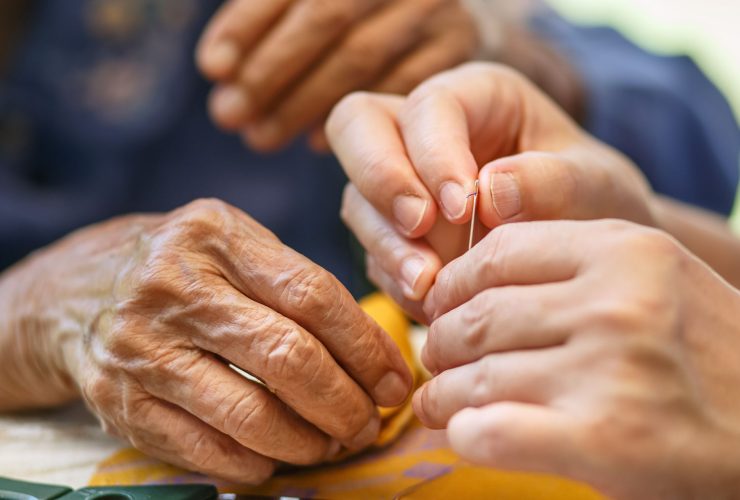Prepping For Prep
Is my child ready to start school?
We know what a huge step starting school is for children and families! A hot topic at this time of year for both parents and occupational therapists alike, is whether our children are ready to make the transition from kindergarten to prep. Parents naturally want to know how they can best support their little people with starting in the world of big school come January. Chatting to an OT can be a good way to start.
OTs can support children and families on the journey from kindergarten to prep. They provide intervention, guidance and practical strategies to inform our decisions about starting school and ensuring children are ready for this huge and exciting transition in their lives.
Understanding a bit about a child’s natural development and the expectations of teachers at school can help to minimise any concerns around this transition. Some children are ‘ready’ for school well before starting, whilst others are right on the cusp of being ready as they start. The variation is wide and children all develop individually. There is ‘no one size fits all’ but there are things to look for which can help guide any decisions about starting prep and boost children’s confidence and skills. So what do we consider when we look to help children and families?
- Are they emotionally ready? Does your child have some ability to…
- Be able to sit and listen for a while when they need to?
- Wait for their turn, listen to others talk and have the confidence to put up their hand and share their amazing ideas?
- Settle and calm themselves after they have been hurt or upset, with support from an adult other than you? Or with the help of a friend?
- Follow a number of instructions and complete tasks or activities with minimal reminders?
- Engage in an activity that they may not have chosen to do themselves?
- Sit on the floor long enough to listen to a story being read to them? Or have great ideas about how to manage this so that they don’t miss out?
- Cope when they make a mistake or lose a game/don’t get chosen?
- Are they socially ready?
School success requires young children be able to: understand their own feelings and the viewpoint and feelings of others, cooperate with both peers and adults, resolve conflict successfully and control their own behaviour. As OT’s we support the development of these skills. As a parent, you might want to consider:- Does your child have friends and children to play with in their current kindy or regular social activities?-
- Is your child aware of how to talk to other children their age and navigate finding a game and group of peers that might help them enjoy their free play and break times?
- Is your child able to communicate their needs, wants and interests to children their own age and to adults?
- Does your child know how to manage normal, small, day to day conflict and disagreements with peers and friends?
- Can they share and play alongside and with other children without regular adult intervention or support?
-
Prep often demands a step up in independence for our little people! We can help by planning, preparing and practicing the daily tasks and activities that will occur in prep. Occupational therapists help get the building blocks in place so children are ready or on their way to managing some of these important skills:
- Independent toileting (including bottom wiping)
- Managing lunch boxes, water bottles and containers – very important!
- Some aspects of essential dressing
- Being able to organize their bag and belongings
- Drawing familiar objects such as houses and trees
- Pencil control and recognizing letters, shapes and numbers as objects and concepts
- Scissor skills! This is always a challenging task and requires lots of practice. It is important to get to the point of using two hands for the task with a dominant hand doing the cutting consistently
- Coping with lots of distraction. In prep there is so much to do, so many rules and so little time! The routine and structure of prep can be a huge change for children
Some children have identified challenges, but there is always a way to put the right level of support in place, manage expectations and make sure we reward effort and not just achievement. Supporting a child to be able to learn is the first step no matter what obstacles are in the way! Talking through specific challenges with an OT may well help provide some realistic management strategies and recognise achievements and your child’s strengths.
The key is to be aware and seek support or advice if you are unsure or worried. Now is a great time to do this with a few months left to the start of the new school year. Parents are always their child’s biggest advocate – reach out for some help, strategies or assessment if you are thinking the prep transition might be tough for your child. OT’s regularly support families with life transitions and can help to support school staff understand the unique strengths and challenges your child may bring to their prep classroom. Sometimes that support is needed for a short time only and sometimes your OT might be able to follow through this important life transition with you and your child for a little longer.
References:
Klein, L. G. (2002). Set for success: Building a strong foundation for school readiness based on the social-emotional development of young children. The Kauffman early education exchange, 1(1), 1-5
Bowman, B., Donovan, M., Burns, S. (Eds.), & the Committee on Early Childhood Pedagogy of the National Research Council. (2000). Eager to learn: Educating our preschoolers. Washington, DC: National Academy Press
Shonkoff, J. P., & Philips, D. A. (Eds.). (2000). From neurons to neighborhoods: The science of early childhood development. Washington, DC: National Academy Press.
Hemmeter, M. L., Ostrosky, M., & Fox, L. (2006). Social and Emotional Foundations for Early Learning: A Conceptual Model for Intervention. School Psychology Review, 35(4), 583–601. https://doi.org/10.1080/02796015.2006.12087963


